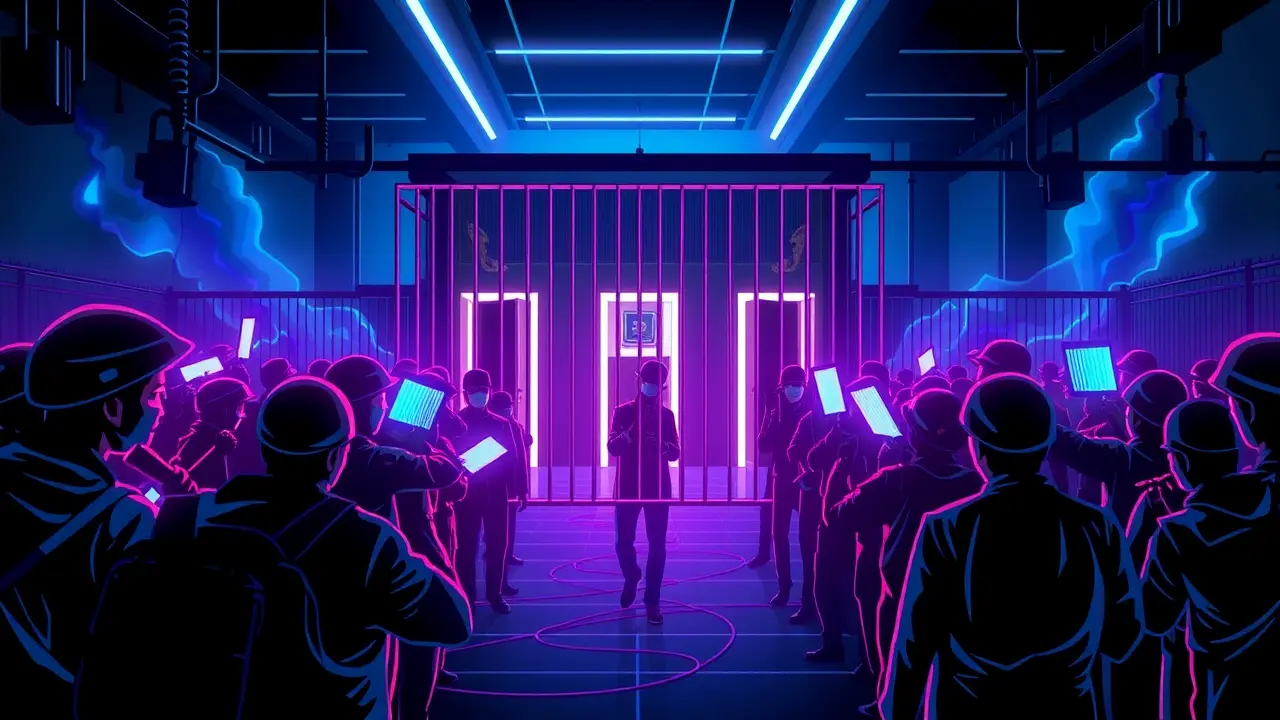
PoliticslegislationNew Bills and Laws
Guatemala Enacts Strict Anti-Gang Legislation Amid Political Crisis
OL
Oliver Scott
4 weeks ago7 min read1 comments
In a decisive legislative maneuver that echoes the draconian 'mano dura' policies which have cyclically swept through Central America, Guatemala’s Congress has overwhelmingly passed the 'Law for the Frontline Combat of Criminal Activities of Maras,' a sweeping anti-gang statute designed to impose significantly harsher criminal penalties on members of these deeply entrenched organizations and to establish a new, segregated prison system. The bill, backed by 145 lawmakers on October 21, arrives not in a vacuum of calm governance but squarely amidst a profound and escalating political crisis, a timing that veteran political risk analysts view as a calculated gambit with potentially explosive consequences.The legislation, at its core, represents a classic high-risk, high-reward political strategy; by aggressively targeting the maras—notoriously powerful groups like MS-13 and Barrio 18 that exert control over swathes of territory and have been a primary driver of the region's migration crises—the besieged administration of President Bernardo Arévalo is attempting to project an image of resolute control and national security. However, this move carries the distinct and dangerous precedent of backfiring catastrophically, as seen in neighboring El Salvador under President Nayib Bukele, where a similar all-out war on gangs, while initially popular, has led to widespread allegations of human rights abuses, mass arbitrary detentions, and a consolidation of executive power that critics label authoritarian.The Guatemalan law’s provisions for new, high-security prisons immediately evoke the specter of Bukele’s CECOT facility, a symbol of both security and state overreach, raising critical questions about the potential for judicial overburdening, the targeting of marginalized youth based on appearance rather than evidence, and the inevitable strain on an already fragile penitentiary system. The political calculus here is stark: by pushing this law now, the government is attempting to seize a powerful narrative away from its opponents in the entrenched political and economic elite, the so-called 'pact of the corrupt,' who have been relentlessly attempting to undermine Arévalo's reformist agenda since his surprising electoral victory.This is a high-stakes bet that the short-term populist appeal of crushing gang violence will outweigh the long-term institutional corrosion and potential for brutal crackdowns. The immediate scenario to watch is whether this legislation will successfully placate a public desperate for security or if it will instead inflame existing tensions, potentially triggering increased gang retaliation, further destabilizing the country, and providing a pretext for even more aggressive state measures that could ultimately undermine the very democratic institutions President Arévalo promised to protect.The international community, particularly the United States which has a vested interest in regional stability and migration flows, is now placed in a difficult position, forced to weigh its support for a beleaguered democratic leader against the alarming echoes of policies that have historically traded short-term security for long-term human rights calamities. The passage of this law is not merely a policy shift; it is a pivotal stress test for Guatemalan democracy, a gamble where the chips are human lives and the future of its constitutional order.
#Guatemala
#anti-gang law
#maras
#harsher penalties
#new prisons
#legislation
#lead focus news
Stay Informed. Act Smarter.
Get weekly highlights, major headlines, and expert insights — then put your knowledge to work in our live prediction markets.
Related News
Comments
Loading comments...
© 2025 Outpoll Service LTD. All rights reserved.